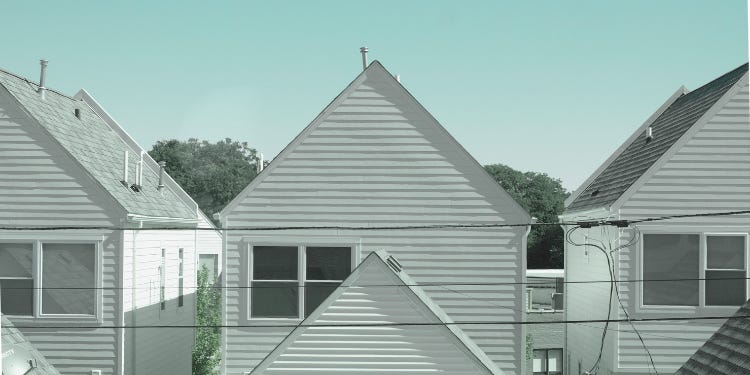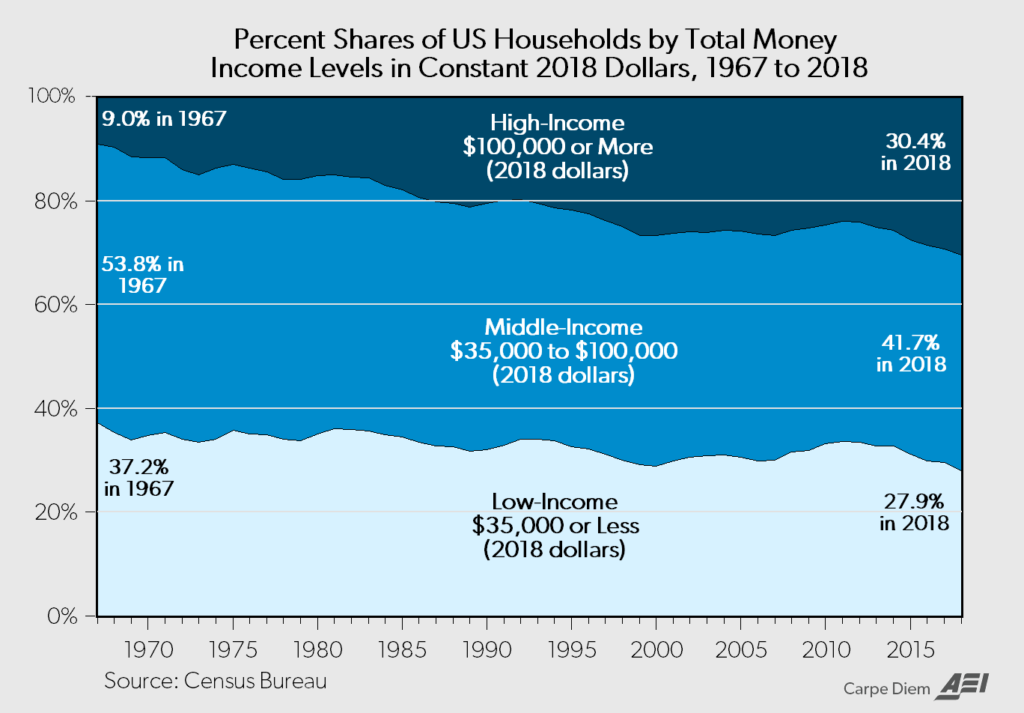
Breaking: A Big Democratic Party Narrative

“...a dangerous and growing inequality and lack of upward mobility... has jeopardized middle-class America’s basic bargain ― that if you work hard, you have a chance to get ahead. I believe this is the defining challenge of our time: making sure our economy works for every working American. It’s why I ran for President. It was at the center of last year’s campaign. It drives everything I do in this office." — President Barack Obama, 2013
"for 40 years, the American middle class has been disappearing. Millions of people are working longer hours for lower wages despite a huge increase in technology and productivity. And what we have seen during that period is... massive wealth and income inequality..." — Bernie Sanders, 2015
"The point is to stem runaway income inequality, where wealth begins to automatically compound at obscene rates for the extremely rich w/o lifting a finger - often at the cost of low wages. This is a huge driving factor in income & wealth inequality & few want to talk about it." — Alexandria Ocasio-Cortez, 2019
"Income inequality" was a term we started to hear quite a bit during Barack Obama's re-election campaign back in 2012. It was framed by the president as worsening problem; a crisis in fact — this notion that rich people were becoming unacceptably wealthier than the middle class, and thus should pay more taxes to somehow balance out the playing field.
At the time, Obama's political future was very much in question. Americans were still struggling with the nation's slowest economic recovery since the Great Depression, and the polls going into 2012 showed that voters had just about lost patience with the president. Understanding that the economy likely wasn't going to show any rapid improvement before election day, the Obama camp decided that a class warfare campaign was their best hope of sticking around for another four years.
Thus, with the help of many in the mainstream media, wealthy people were turned into the cause of the anemic recovery, and forcing them to pay their “fair share” was the proposed solution. It didn’t make a lick of economic sense, but the stoking of economic resentment indeed resonated with much of the electorate.
After all, it’s not exactly a tough sell to convince people of the conventional wisdom that “the rich get richer and the poor get poorer.” It’s even easier when a lot of people are struggling to stay afloat in a terrible economy. And in the end, it was enough to give Obama the win over a highly successful businessman whose personal wealth was front and center.
Since then, “income inequality” has become a mainstream political term, with top leaders within the Democratic Party insisting that its rise, and the “disappearance of the middle class,” are among the greatest threats our nation faces. In fact, just about every 2020 Democratic presidential candidate has been running, in part, on how to address the issue, with new terms like "economic justice" entering the fray.
Senator Elizabeth Warren has even put forth, in the name of income inequality, a radical “wealth tax” proposal that could cost the nation’s richest employers hundreds of billions of dollars.
But a report today from the U.S. Census Bureau may have just thrown a big, cold bucket of water on the entire premise of growing income inequality.
As illustrated in a helpful graph from the American Enterprise Institute, a statistical measure of income inequality known as the Gini Coefficient has remained virtually flat for — wait for it — the last 25 years:

This is what Obama referred to as “the defining challenge of our time”?
Do you know what else has remained virtually flat over the last 25 years? The income shares of the top 5 and 20 percent of U.S. households:

So... Where's the growing inequality?
But wait. Is Bernie Sanders at least right when he says the middle class is disappearing?
Yes, he actually is. However, it’s not because these people are falling further behind the rich. It’s because they’ve been moving into higher income brackets:

As Mark Perry of the AEI points, out, "The share of US households making $100K (2018 $$) has more than tripled since 1967, from 9% to 30.4%."
Keep in mind that these aren’t the findings of some partisan group. We’re talking about data directly from the U.S. Census Bureau.
One would think that this information would devastate the campaign platforms of some of the top Democratic presidential candidates, but something tells me that neither they, nor much of the media, will put much stock in, or at least give much time to, these particular findings in U.S. Census report.
After all, who needs facts when the narrative is what’s important.
—





